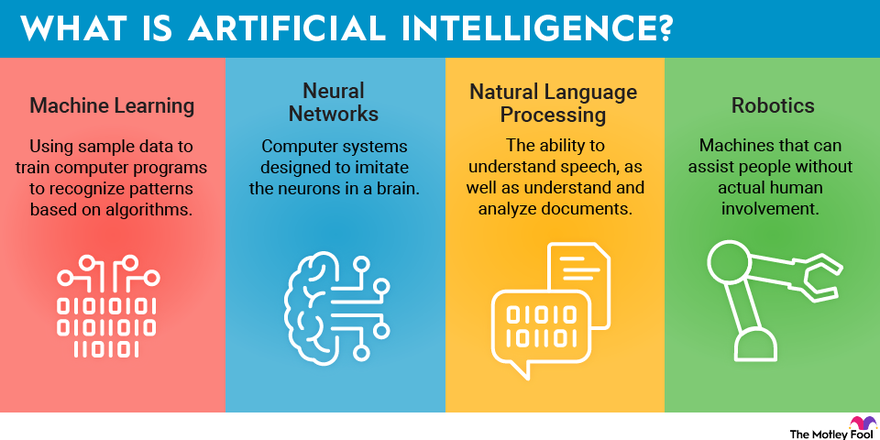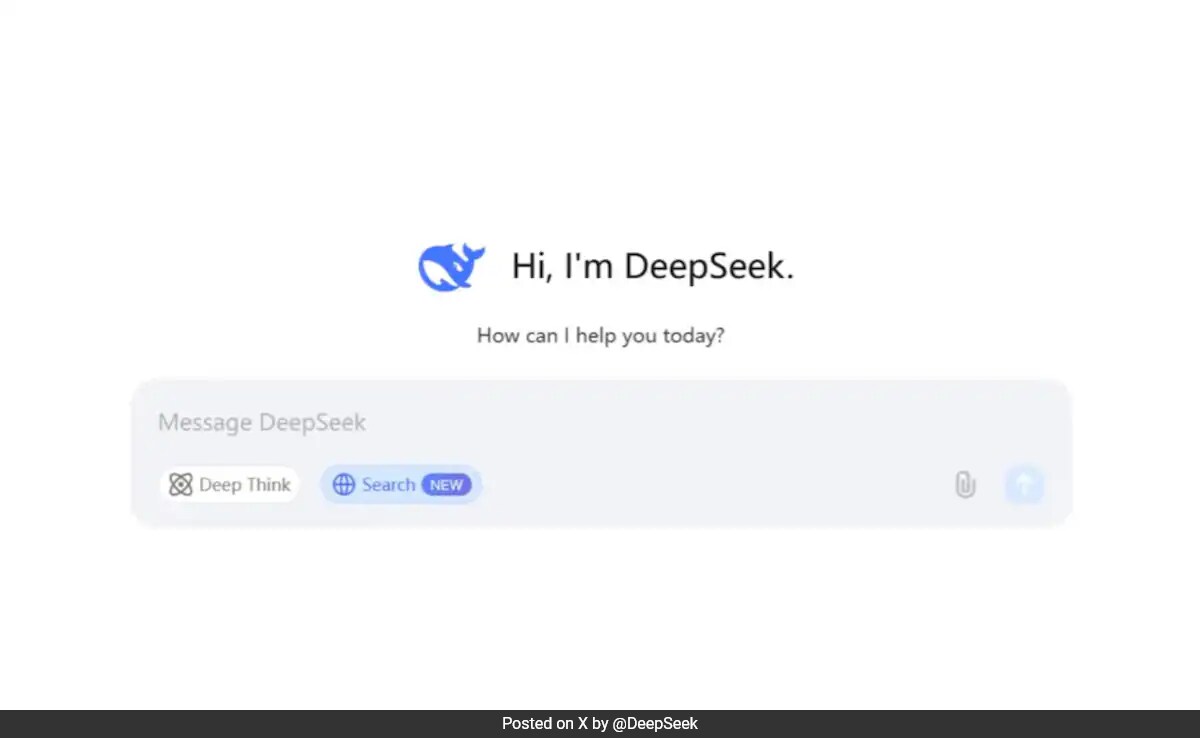We might generate income when you click on links to our partners. Discover more.
What is artificial general intelligence (AGI), and why does it matter? As one of the most talked-about subjects in innovation today, it has actually stimulated a race amongst leading companies like OpenAI and Google to turn this cutting-edge idea into truth. Understanding AGI is necessary because it has the potential to revamp markets, affect our society in extensive ways, and alter the method we interact with technology. Here's what you need to learn about what it might be able to do, how it might change industries and fields, and the significant obstacles facing its development.
KEY TAKEAWAYS
• AGI differs from conventional AI in crucial methods in that it would have the ability to think, discover by itself, and adapt to brand-new obstacles like people unlike standard AI, which is created for specialized jobs and operates within a limited scope. It requires people to update and refine capabilities. (Jump to Section).
• Once it ends up being a reality, AGI would be able to make impressive advances in several fields, consisting of health care, research study, and finance sectors. (Jump to Section).
• Creating AGI is hard due to the research challenges that consist of technical, ethical, and social issues. Addressing these difficulties is main to keeping the safe and positive advancement of this technology. (Jump to Section)
Featured Partners: Expert System Software
Find out more
TABLE OF CONTENTS
What is Artificial General Intelligence (AGI): A Clear Definition.
Understanding AGI vs Traditional AI.
Potential Applications of Artificial General Intelligence.
Challenges in Artificial General Intelligence Research.
3 Introductory AGI Courses to Consider.
Frequently Asked Questions (FAQs).
Bottom Line: Why Knowing What Is Artificial General Intelligence Matters.
What is Artificial General Intelligence (AGI): A Clear Definition
Artificial general intelligence, or AGI, describes a type of expert system (AI) that can interpret, discover, and carry out any cognitive job that a human can do. Unlike today's AI, which is built to deal with particular tasks like recommending products or processing information, AGI would have the ability to adjust to new challenges and apply understanding throughout different fields. In other words, this advanced kind of AI would believe and reason like a human. While AGI holds great prospective, it's worth noting that it is still a concept today, with no completely developed systems offered yet.
Key Capabilities of Artificial General Intelligence
.webp)
AGI would have a range of capabilities that imitate human intellectual functions, so it can perform tasks beyond the narrow focus of the present AI tools in the market. Some essential abilities consist of the following:
Human-Like Reasoning: The technology would have the ability to understand and make choices the way people do. It would think critically, fix issues, and come up with solutions based on its own experiences and previous interactions, comparable to how we apply past knowledge to new situations.
Solving Unfamiliar Problems: One of AGI's strengths is its potential to take on brand-new problems. Unlike standard AI, which is trained to carry out specific jobs, AGI would have the capacity to manage problems it hasn't been directly trained to fix. It might determine how to approach a totally brand-new obstacle, much like human beings do when faced with something we've never ever experienced before.
Self-Learning and Adapting: AGI might tweak its abilities and gain from experience, without the requirement to be manually upgraded whenever. It would observe and evaluate information, gain from errors, and discover better methods to finish tasks in time. This suggests AGI could adapt to new situations and improve at tasks on its own.
Using Knowledge Across Different Areas: AGI would be able to take what it finds out in one area and use it to other jobs. For example, if it learned how to solve math issues, it might utilize that knowledge to attend to challenges in other fields, like science or business. The ability to transfer skills across different locations is something people do naturally and would make the innovation versatile in varied sectors.
Understanding and Responding to Emotions: Recognizing and responding to human emotions would likewise be within AGI's capabilities. This would be very important in settings where understanding people's feelings matters, such as health care, customer support, or social circumstances. By reacting to emotions properly, AGI would be much better equipped to deal with human beings in an efficient way.
Understanding AGI vs Traditional AI
The table below supplies a snapshot of the major distinctions between AI and traditional or narrow AI by highlighting their abilities, flexibility, and existing status.
AGI would have the ability to believe, find out autonomously, and adjust to brand-new challenges like people. However, it is still theoretical and has actually not been recognized yet. On the other hand, conventional AI is constructed for specific tasks and runs within a repaired scope. It can not adapt to new jobs without human input.
For instance, an AGI might find out to detect medical conditions, then use that understanding to develop tailored treatment plans-and even adjust its technique based upon the client's development. Additionally, it might use this analytical capability to tasks in entirely different fields, such as producing organization methods or recommending on ecological conservation. On the other hand, traditional AI, like a diagnostic tool, can only analyze medical information for particular conditions. It can not adapt to other areas or enhance on its own.
Potential Applications of Artificial General Intelligence
While AGI isn't here yet, its potential applications span many fields and hold excellent promise of extreme improvements in many sectors. Without being restricted to particular tasks like narrow AI, AGI would be highly versatile and could apply its capabilities to fix multi-disciplinary problems. It could overcome obstacles presently beyond the abilities of existing AI applications.
Transforming Healthcare
AGI would change the video game in health care by detecting complex and rare illness with greater precision, even in cases where signs are ambiguous or overlap with several conditions. It could develop extremely tailored treatment strategies by studying client history, genetic information, and real-time health data. In addition, AGI might accelerate drug discovery, recognizing possible treatments in weeks instead of years by processing enormous datasets and running predictive simulations.

Advancing Scientific Research
In scientific research study, AGI would be able to imitate experiments, analyze complex datasets, and generate hypotheses. It might expedite advancements in quantum physics, genomics, and environment science. By incorporating understanding from different domains, the technology might uncover connections and solutions that might otherwise go undetected by standard AI.
Improving Industry
Organizations in the commercial field could utilize AGI to enhance performance in real-time by handling whole supply chains. It would forecast and fix interruptions before they occur. In manufacturing, it might oversee self-governing factories, enhancing production procedures while keeping security and quality requirements. Its ability to adapt to altering situations would make it an important tool in commercial environments.
Enhancing Business Strategy
AGI might enhance organization decision-making by evaluating market trends, customer behavior, and functional data to discover chances and risks. In contrast to narrow AI systems, AGI would innovate options to difficult organization issues, such as dealing with financial uncertainty or forecasting long-term market shifts. Its capability to gain from varied sources would empower services to stay competitive.
Redefining Finance
In the financial sector, AGI might increase forecasting accuracy by identifying patterns in vast amounts of financial data, so financiers and institutions can make educated choices. It would likewise be able to spot fraud in real-time by recognizing subtle abnormalities that conventional AI systems might miss out on. Additionally, AGI might construct more robust monetary designs, considering complex variables and situations to reduce risks.
Challenges in Artificial General Intelligence Research
Developing AGI is one of the most ambitious goals in technology, however it features numerous difficulties. These difficulties consist of technical, ethical, and social locations, making AGI development an elaborate and multi-faceted procedure. Overcoming the following obstacles is tantamount to making sure safety, promoting ethical requirements, and thoroughly preparing how AGI's introduction and use will impact people, markets, and society as a whole:
Making AGI Truly Flexible: AGI would require to manage a wide variety of issues and adapt to new scenarios, much like humans. Building a system of versatility is extremely difficult since current AI tools are not developed to believe or discover at this level of sophistication.
Massive Computing Needs: To reproduce human intelligence, AGI would require massive quantities of calculating power to process information from varied sources quickly. Figuring out how to make such systems effective and efficient enough for real-world use is a substantial difficulty.
Understanding Human Intelligence: We do not totally comprehend how human believing works, specifically complex aspects like intuition or consciousness. Without this understanding, it's challenging to develop devices that can replicate human-like thinking.
Making AGI Safe and Ethical: AGI might possibly be misused, like to create biased systems or harmful tools like autonomous weapons. Researchers should ensure that AG is built responsibly and follows stringent ethical standards. This is a difficult job that demands global collaboration.
Keeping It Under Control: There's a risk AGI might act in methods we don't expect, especially because it would have the capability to learn and alter with time. Ensuring that these systems stay lined up with human values and are safe to utilize is one of the most significant challenges in AGI research.
Impact on Jobs and Society: If AGI comes true, it could change tasks or trigger financial inequality by benefitting some groups more than others. Getting ready for these social effects is simply as essential as developing the technology itself.
High Costs and Resources: Researching AGI demands a great deal of cash, gratisafhalen.be time, and professional understanding. Not all companies have these resources, decreasing development and leaving smaller sized organizations out of the race.

3 Introductory AGI Courses to Consider
Familiarizing yourself with AGI can give you an one-upmanship, whether you want to advance your profession in AI or merely desire to stay notified about emerging technologies. The following initial courses can assist you acquire a deeper understanding of what artificial general intelligence is, so you can solidify your knowledge about this appealing AI advancement.
Artificial General Intelligence (AGI): An Introductory Course on Udemy
This Udemy course supplies a basic understanding of AGI, ideal for beginners without any prior experience. The course covers pertinent subjects, consisting of the structures of AI, the fundamentals of AGI, and the current trends in the field. It also checks out the benefits, risks, and obstacles connected with AGI, equipping you with insights into what the advanced innovation can attain. The entire course consists of 15 lectures and can be completed in around 45 minutes. Upon completion, you will receive a certificate to reinforce your qualifications in the task market. This introductory course costs $24.99.
Intro to Artificial General Intelligence (AGI): Future of AI on Udemy
Udemy's initial course provides a detailed introduction of AGI for students with no technical background. It goes over the historic context and structure of AGI, the differences in between narrow AI and AGI, and ethical factors to consider surrounding its advancement. In addition, it attends to future trends in AI and AGI, shedding light on the obstacles and chances that lie ahead. Spanning one hour and 46 minutes, the course consists of 39 lectures, on-demand video, bphomesteading.com and downloadable resources. It also has a dry run at the end to strengthen your understanding. You will be awarded a certificate once you complete the course. It is readily available as part of Udemy's premium plans, beginning at $20 monthly, or as a separate purchase of $49.99.
Artificial General Intelligence (AGI) on Udemy

This Udemy course brings a clear and succinct intro to the subject, with on-demand videos and 22 lectures. It elaborates on significant AGI principles and the role of robotics in AGI advancement. It also analyzes the ethical, software application, and hardware obstacles in creating AGI. The course provides tests to check your understanding and a certificate of conclusion. Priced at $44.99, it is produced learners at any level, making it accessible and valuable for anybody who wishes to discover more about AGI.

Frequently Asked Questions (FAQs)
Achieving AGI could revolutionize industries, improve decision-making, and result in substantial improvements in innovation. However, it also raises issues about ethics, task displacement, and the requirement for correct guideline to make certain it is developed securely and properly.
Experts disagree on how far we are from accomplishing AGI. Sam Altlman of OpenAI believes in 2025, AI representatives might join the labor force, eventually leading the way to AGI development. On the other hand, a study of AI researchers puts the typical estimate around 2047. Despite quick AI advancements, present systems are still restricted to narrow jobs and lack the broad, flexible thinking of humans-so AGI is likely still decades away.
The concept of AGI completely changing human beings is still disputed. Despite the fact that it's likely that AGI will assist us by taking over repetitive jobs, there is a possibility that it might displace certain tasks. That said, instead of totally changing humans, AGI is anticipated to work together with us, dealing with technical duties while we concentrate on jobs that require creativity and compassion. At the end of the day, the results of AGI will depend upon how society chooses to handle and incorporate it.
Bottom Line: Why Knowing What Is Artificial General Intelligence Matters
Understanding synthetic basic intelligence is imperative due to the fact that this technology might alter industries, solve hard problems, and transform how we use AI. But as we start to establish AGI, we must thoroughly attend to a number of difficulties, consisting of technical concerns, ethical concerns, and its general effect on society. By finding out about AGI's possible and threats, we can pursue ensuring it is created properly and utilized in manner ins which would benefit everyone.









